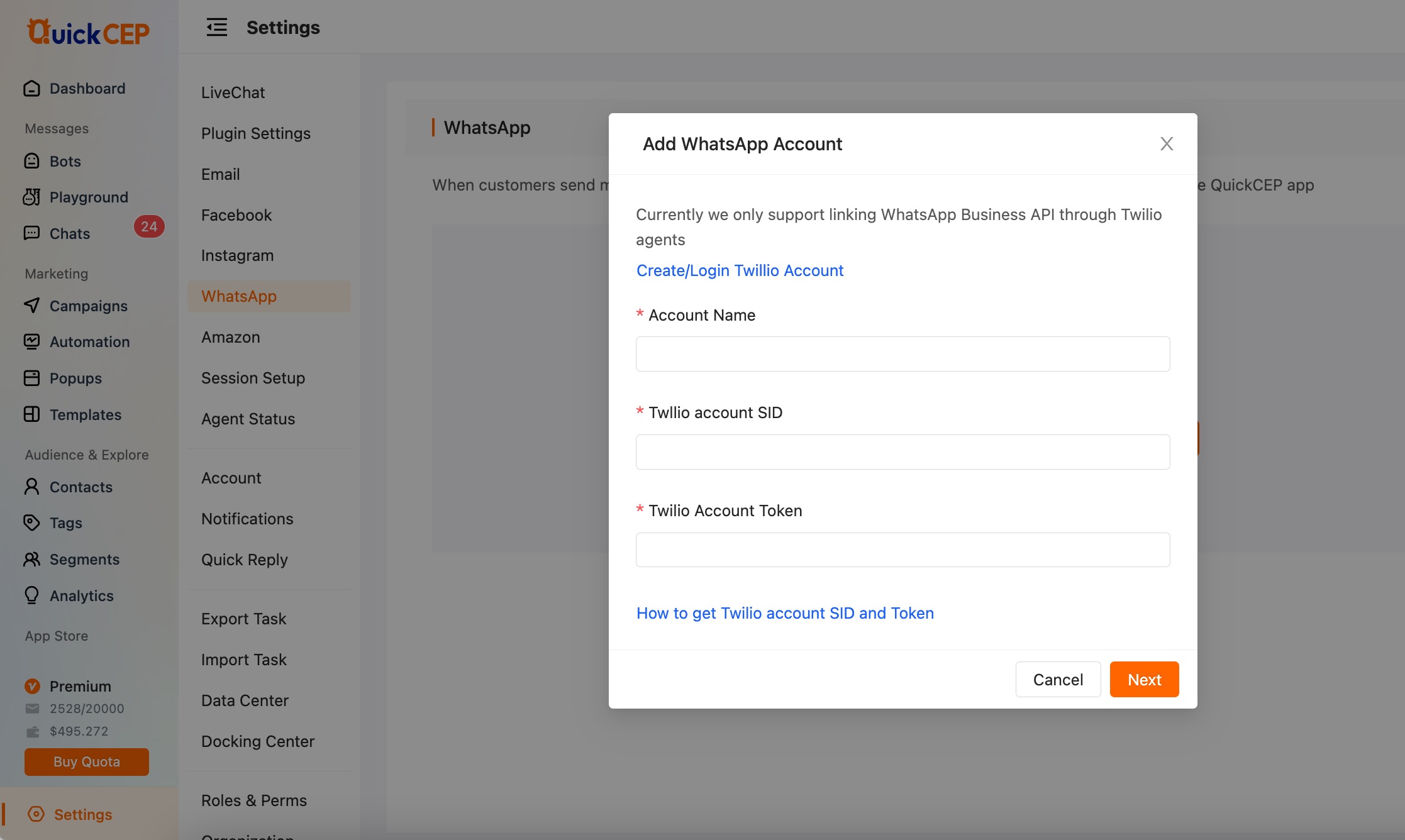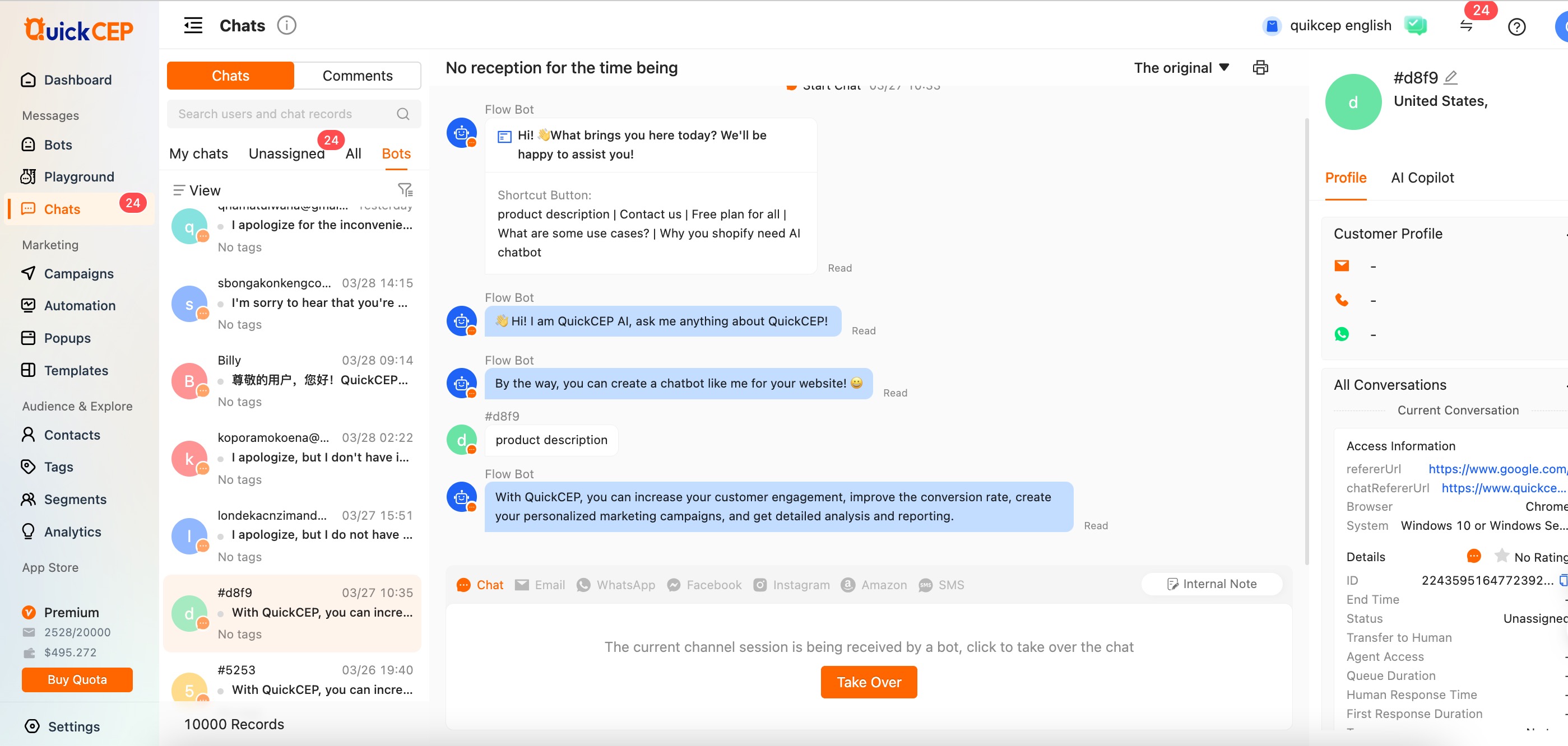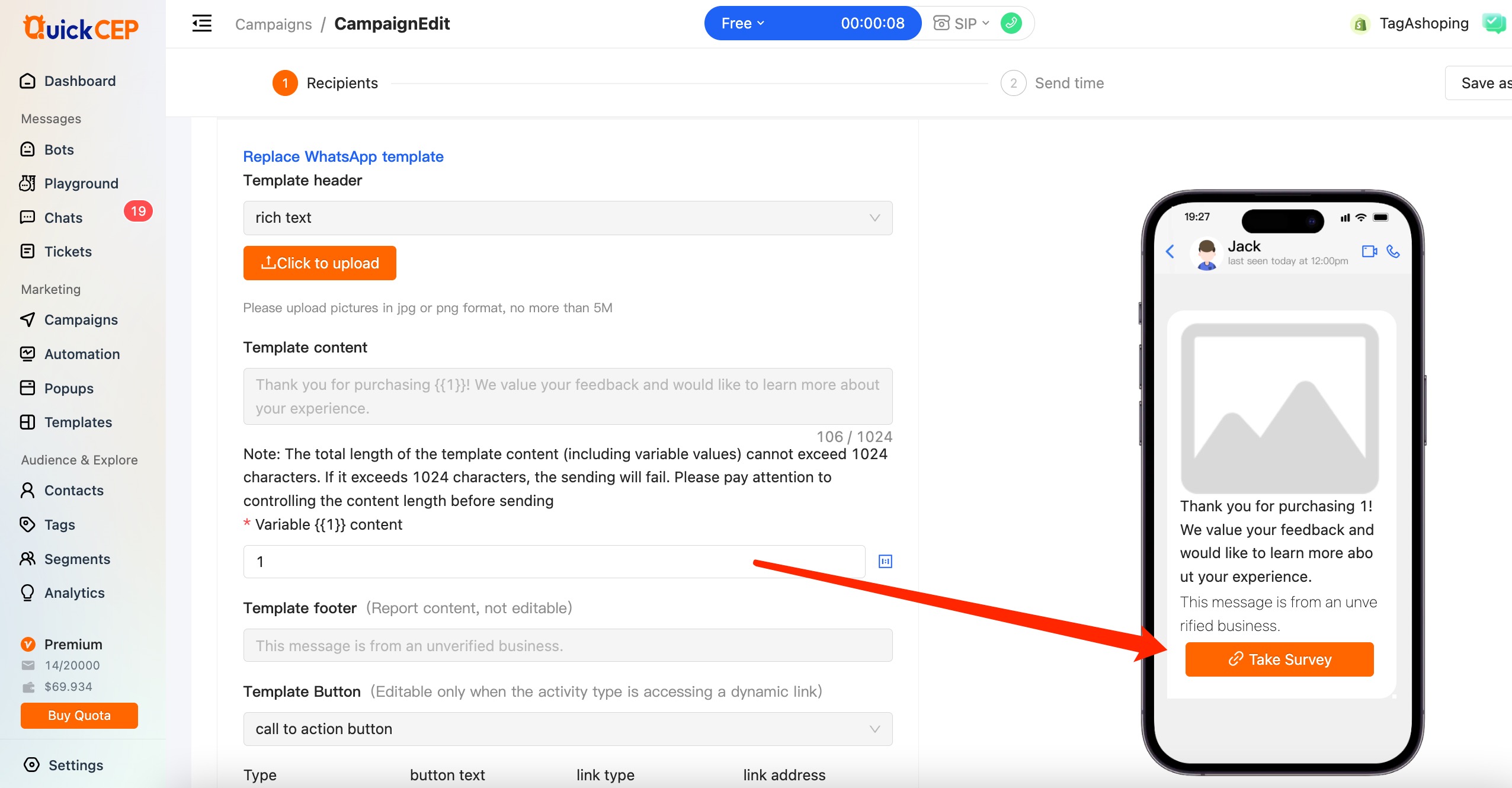4 Essential WhatsApp Automation Use Cases for Business Growth

Understanding WhatsApp Automation and Its Importance
In today's digital age, WhatsApp Automation has emerged as a powerful tool for businesses to streamline their communication processes and enhance customer engagement.
What is WhatsApp Automation?
WhatsApp Automation refers to the use of automated tools and technologies to manage and optimize various business processes within the WhatsApp messaging platform. It involves the use of chatbots, AI-powered responses, and automated workflows to handle customer inquiries, sales interactions, marketing communications, and more. By leveraging automation, businesses can efficiently manage their interactions on WhatsApp without manual intervention.
Why Businesses Should Care
The adoption of WhatsApp Automation offers several compelling benefits for businesses. Firstly, it enables companies to provide instant responses to customer queries and automate frequently asked questions (FAQs), leading to improved customer satisfaction. Additionally, it allows for seamless collection of customer feedback, providing valuable insights for enhancing products or services. Moreover, automation streamlines sales processes by qualifying leads, nurturing prospects, and delivering timely sales updates.

The significance of WhatsApp Automation extends beyond just operational efficiency; it directly impacts customer experience and overall business growth. By embracing automation on WhatsApp, businesses can stay ahead in the competitive landscape by delivering exceptional support and personalized interactions.
1. Customer Support Optimization
In the realm of customer support, WhatsApp Automation presents a myriad of opportunities to enhance service delivery and elevate customer satisfaction.
Use Cases for WhatsApp Automation in Customer Support
Instant Responses and FAQ Automation
One of the primary use cases for WhatsApp Automation in customer support is the provision of instant responses to inquiries. Automated chatbots can swiftly address common queries, providing real-time assistance to customers without human intervention. Additionally, FAQ automation allows businesses to automate responses to frequently asked questions, ensuring that customers receive prompt and accurate information round the clock.
Customer Feedback Collection
Another valuable application of WhatsApp Automation is the seamless collection of customer feedback. Automated workflows can be implemented to solicit feedback from customers following their interactions with the business. This enables companies to gather insights into customer preferences, pain points, and overall satisfaction levels, empowering them to make data-driven improvements.
Benefits of Automating Customer Support
Improved Response Times
By leveraging WhatsApp Automation, businesses can significantly enhance their response times to customer inquiries. Automated tools enable swift and efficient handling of incoming messages, reducing wait times for customers and fostering a sense of responsiveness and reliability.

Higher Customer Satisfaction
The implementation of WhatsApp Automation in customer support directly contributes to elevated levels of customer satisfaction. Through instant responses, proactive communication, and personalized interactions facilitated by automation, businesses can create positive experiences for their customers, leading to heightened satisfaction levels and strengthened brand loyalty.
Utilizing automated tools within WhatsApp not only streamlines support processes but also cultivates a more responsive and customer-centric approach within businesses.
2. Streamlining Sales Processes
In the realm of sales, WhatsApp Automation serves as a valuable asset for optimizing various processes and nurturing customer relationships.
Use Cases for WhatsApp Automation in Sales
Lead Qualification and Nurturing
One of the pivotal applications of WhatsApp Automation in sales is lead qualification and nurturing. Automated workflows can be designed to engage with potential leads, gather essential information about their needs and preferences, and qualify them based on predefined criteria. Furthermore, automated messages can be tailored to nurture leads by providing relevant content, product information, and personalized communication to guide them through the sales funnel.
Sales Updates and Notifications
Another significant use case for WhatsApp Automation is the dissemination of sales updates and notifications. Businesses can automate the delivery of important updates such as order confirmations, shipping notifications, and product availability alerts directly to customers via WhatsApp. This real-time communication not only keeps customers informed but also enhances their overall experience by providing timely and relevant information.
Benefits of Automating Sales Processes
Increased Sales Efficiency
By leveraging WhatsApp Automation, businesses can significantly enhance their sales efficiency. Automated lead qualification and nurturing processes streamline the initial stages of customer engagement, allowing sales teams to focus their efforts on high-potential prospects. Moreover, automated updates and notifications ensure that customers are promptly informed about relevant developments, leading to smoother transactions and increased conversion rates.

Better Lead Management
The implementation of WhatsApp Automation contributes to improved lead management practices within sales operations. Automated workflows enable businesses to systematically capture lead data, track interactions, and categorize leads based on their level of engagement. This structured approach facilitates better organization and prioritization of leads, ultimately enhancing the effectiveness of sales strategies.
3. Enhancing Marketing Strategies
In the realm of marketing, WhatsApp Automation offers a plethora of opportunities to revolutionize communication strategies and elevate brand engagement.
Use Cases for WhatsApp Automation in Marketing
Personalized Marketing Messages
One of the key applications of WhatsApp Automation in marketing is the delivery of personalized messages to target audiences. Automated workflows enable businesses to segment their customer base and tailor marketing communications based on individual preferences, behaviors, and purchase history. By sending personalized messages, businesses can establish a deeper connection with their customers, leading to increased brand loyalty and higher conversion rates.
Product Launch Announcements
Another significant use case for WhatsApp Automation is the facilitation of product launch announcements. Businesses can automate the dissemination of captivating product teasers, exclusive sneak peeks, and launch event details directly to their audience via WhatsApp. This real-time approach not only generates excitement but also fosters a sense of exclusivity among customers, driving anticipation and interest in new offerings.
Benefits of Automating Marketing Strategies
Higher Engagement Rates
By leveraging WhatsApp Automation, businesses can achieve higher engagement rates through targeted and timely communication. Personalized messages tailored to specific customer segments resonate more effectively, leading to increased interaction, click-through rates, and overall engagement with marketing content.
Improved Targeting and Personalization
The implementation of WhatsApp Automation enhances targeting precision and personalization within marketing initiatives. Automated segmentation and messaging allow businesses to deliver relevant content that aligns with the interests and needs of individual customers. This level of personalization not only strengthens brand-consumer relationships but also maximizes the impact of marketing efforts by delivering content that resonates with recipients.
4. Automating Business Tasks
In the realm of business operations, WhatsApp Automation plays a pivotal role in streamlining various tasks and enhancing operational efficiency.
Use Cases for WhatsApp Automation in Business Operations
Appointment Scheduling and Reminders
WhatsApp Automation offers businesses the capability to automate appointment scheduling and reminders, facilitating seamless coordination with customers and clients. Automated chatbots can engage in conversation to schedule appointments based on availability, send automated reminders prior to scheduled appointments, and even handle rescheduling requests. This not only reduces the administrative burden on staff but also ensures that appointments are efficiently managed, leading to improved customer satisfaction.
Order Tracking Updates
Another valuable application of WhatsApp Automation is the automation of order tracking updates. Businesses can implement automated workflows to provide real-time updates on order status, shipping details, and delivery notifications directly through WhatsApp. This proactive approach keeps customers informed about the progress of their orders, minimizes inquiries regarding order status, and enhances overall transparency in the purchasing process.
Benefits of Automating Business Tasks
Increased Operational Efficiency
By leveraging WhatsApp Automation for business tasks such as appointment scheduling and order tracking updates, organizations can achieve increased operational efficiency. Automated processes reduce manual intervention, minimize errors, and streamline task management, allowing businesses to allocate resources more effectively and focus on core activities. This results in enhanced productivity and smoother operational workflows.
Better Resource Management
The implementation of WhatsApp Automation in business tasks contributes to better resource management across various operational functions. By automating appointment scheduling and order tracking updates, businesses can optimize the allocation of human resources towards more strategic initiatives rather than routine administrative tasks. Additionally, efficient task automation ensures that resources are utilized judiciously, leading to cost savings and improved overall resource utilization.
In summary, integrating WhatsApp Automation into business operations presents opportunities for optimizing task management while fostering greater operational efficiency and resource utilization.
See Also
The Future of Boosting Revenue and Conversion Rates with AI Chatbots
Enhance Customer Support and Marketing using a Shopify Chatbot
The 5 Major Advantages of Customer Support through Live Chat
Comparing Chatbots and Traditional Methods for Effective Lead Generation
Selecting the Ideal Live Chat Application for Your Shopify Site


